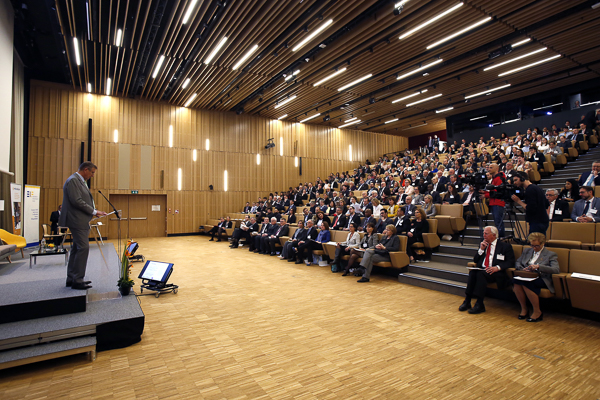
Luxembourg’s first micro-finance institution, microlux, launched yesterday with an event hosted by shareholders BGL BNP Paribas, Appui au Développement Autonome (ADA), Association for the Right to Economic Initiative (ADIE) and its partner the European Investment Fund (EIF).
The Chairman of the Management Board of BGL BNP Paribas, Carlo Thill, and the Chairman of the Board of Directors of microlux, Rémy Jacob, welcomed a large number of interested guests, including high-profile individuals from Luxembourg and Europe, which was symbolically important for the country.
These included, in particular, the Grand Duchess of Luxembourg, Ministers Corinne Cahen and Nicolas Schmit, EIB Vice-President Pim van Ballekom and EIF Deputy Chief Executive Roger Havenith.
To coincide with the official launch, microlux and the EIF signed a micro-finance guarantee agreement as part of the European Union Programme for Employment and Social Innovation (EaSI), whereby a certain percentage of unpaid loans will be repaid.
Now the largest market by volume for micro-finance investment funds, Luxembourg is also facing a need for micro-finance on its own domestic market linked to growing social inequality and the difficulties associated with accessing traditional bank loans.
Her Royal Highness the Grand Duchess stated that “the creation of the first micro-finance institution is an important step for the Luxembourg economy. It is also a momentous occasion for those who, like me, have always been convinced that micro-credits were one of the most effective instruments for tackling poverty and social exclusion, including here in Luxembourg.
“Microfinance is a welcome development in Luxembourg, where it gives every individual the chance to launch a business venture, whether they are poor, marginalised or excluded from the banking system.”
François Bourguignon, former vice president of the World Bank and now a professor at the Paris School of Economics, shed light on the growth of social inequality in Europe and Luxembourg in recent years. “Negative effects on the functioning of the economy and social cohesion lead to the collapse of democratic models, as we are seeing today,” he explained.
Maria Nowak, founder-chair of ADIE and a leading expert in micro-credit in France and Europe, spoke about the opportunities that access to micro-finance creates for tackling such inequalities. “I believe that the opportunities on offer to the poorest individuals to impact circumstances remain limited. What they can do, however, is take control of their own destiny.”
Microlux supports the creation and development of the business activities of individual clients and social startups that are unable to access traditional bank loans.
On the one hand, microlux will offer coaching and supervision via a team of volunteers trained in coaching, micro-finance and launching a business in Luxembourg. On the other hand, the institution will provide three types of loans up to an amount of €25,000.
Image: Announcing the launch of microlux. © Olivier Minaire








